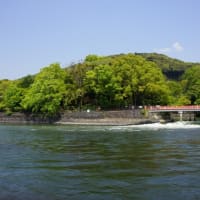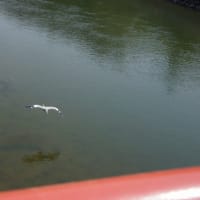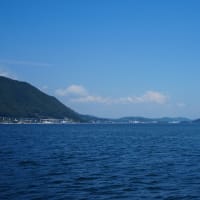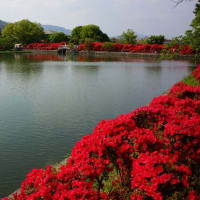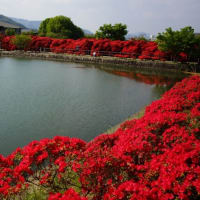The following is from a serial conversation between Gyo Tsutsumi and Koshi Kubo in the current issue of the monthly magazine Hanada.
I've already mentioned that I finally found a part-time student who can help me with the "Turntable of Civilization" project.
Coincidentally, Mr. Tsutsumi is a senior at my alma mater, and Mr. Kubo is the superior of the part-timer.
The emphasis in the text is mine, except for the headline.
The problem is the Komei Party, China's proxy.
The "activity" of the pro-China trio
Kubo
I didn't walk during the year-end and New Year holidays, so my legs and feet became completely weak. I could barely make it here (laughs).
Tsutsumi
When I see a video of Biden walking, he raises his knees more than necessary.
My wife told me that he does that to compensate for the weakness of his legs and feet.
We call it the "Biden walk" at home.
It's like Michael Jackson's moonwalk, but with Biden.
Fish rot from the head, but humans rot from the feet. I don't walk either, so I'm starting to rust (laughs).
Editor
The Beijing Winter Olympics are approaching, but the Japanese government has decided not to send any government officials, including cabinet members and government officials, after all.
However, they will be sending Seiko Hashimoto, the president of the Tokyo Organizing Committee for the Olympics and Paralympics; Yasuhiro Yamashita, the president of the Japanese Olympic Committee; and Kazuyuki Mori, the president of the Japanese Paralympic Committee.
Kubo.
The decision is late, and even Seiko Hashimoto is a politician, so it's not a complete political boycott.
It's a gingerly, fourth-class, cowardly decision.
Tsutsumi
In the end, Kishida decided not to send any government officials, but the hesitation and vacillation that led up to that decision were unseemly.
Britain's Johnson, Australia's Morrison, and Canada's Trudeau quickly announced a diplomatic boycott.
In addition, Lithuania and New Zealand joined the circle of criticism of China's human rights abuses.
Yet Kishida continues to dither, saying, "I would like to decide at an appropriate time from the standpoint of the national interest after comprehensively considering various circumstances."
It is a matter of political reflexes.
Shinzo Abe would have immediately announced a boycott.
In fact, Abe criticized Kishida's indecisiveness on B.S. Nippon Television, saying, "What is the benefit (national interest) in buying time?
Perhaps out of spite, three LDP lawmakers visited the Prime Minister's Office on December 14 and handed Kishida a joint statement calling for a diplomatic boycott.
They were Keiji Furuya (President of the Japan Uyghur Parliamentary Union), Hirofumi Shimomura (President of the Tibet Parliamentary Union), and Sanae Takaichi (President of the Southern Mongolia Parliamentary Union).
In the end, Kishida visited Abe and decided not to dispatch government officials at Abe's persuasion.
When asked by a reporter if this was a diplomatic boycott, Kishida replied, "I would not use that expression."
The fugitive language that panders to the U.S. and China only invites contempt from both sides and has no merit whatsoever.
The adoption of the Diet resolution condemning the genocide and other human rights violations in Xinjiang Uyghur Autonomous Region by the Xi Jinping regime was again blocked by the new secretary-general, Toshimitsu Motegi.
The resolution condemning China was rejected last June by former Secretary-General Toshihiro Nikai and Motoo Hayashi (Deputy Secretary-General). Still, Toshimitsu Motegi rejected it this time, saying, "The content is good, but it's a matter of timing.
Timing? Now is the best time to join voices with those of Europe and the United States who condemn the move.
Yoshimasa Hayashi, who resigned from his post as chairman of the Japan-China Friendship Council to become a foreign minister, is a well-known pro-China figure.
He recently received an invitation from Chinese Foreign Minister Wang Yi to visit China and announced it with a smile on his face.
How would Secretary of State Blinken, his counterpart in Japan's ally, the United States, view this?
He'll be offended that the order is reversed, and Hayashi is not very considerate.
This series of responses demonstrates the Kishida administration's stance on China.
The most significant part of Abe's legacy is his vision of a free and open Indo-Pacific.
From there, it evolved into the QUAD, AUKUS, and other measures to encircle China.
The Kishida administration is letting Abe's legacy fall by the wayside.
As someone once said, Yoshimasa Hayashi is the "ni hao" (hello), Toshimitsu Motegi is the "shay shay" (thank you), and Fumio Kishida is the "wan shay" (hurray).
Ironically, the pro-China trio is standing together.
Originally, Kishida's group, Kochi-Kai, was full of pro-China people, the most prominent of whom was Kiichi Miyazawa.
When China was sanctioned for the Tiananmen Square incident and isolated from the rest of the world, Japan took the lead in lifting the sanctions, and the Miyazawa cabinet even visited the Emperor to help China rejoin the international community.
What did China do in return?
It is thorough anti-Japanese education and claiming ownership of the Senkaku Islands.
Kiichi Miyazawa was the ultimate in stupidity.
I can't help but think that Kishida and Yoshimasa Hayashi have also inherited the DNA of the Kochi-Kai.
This article continues.












